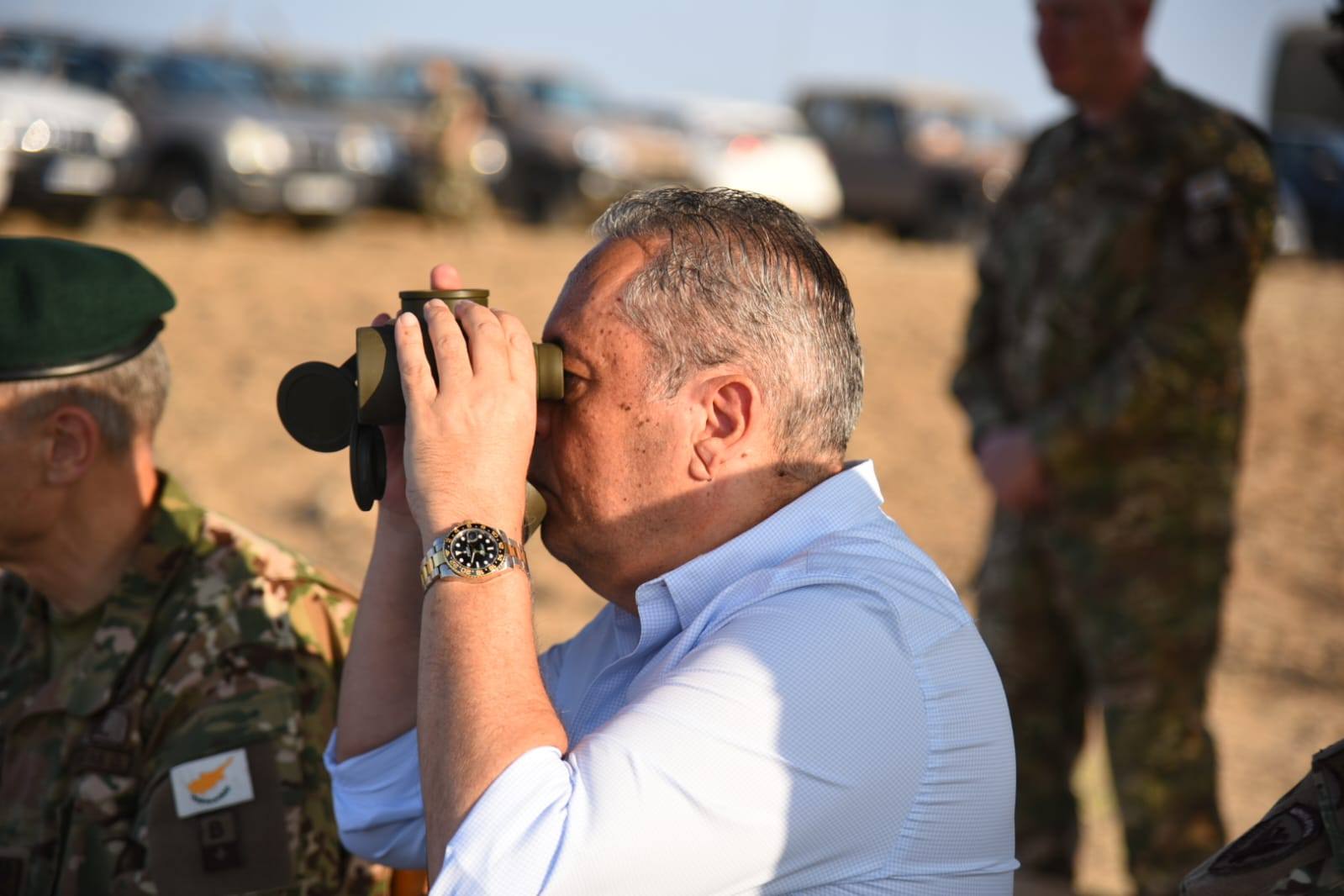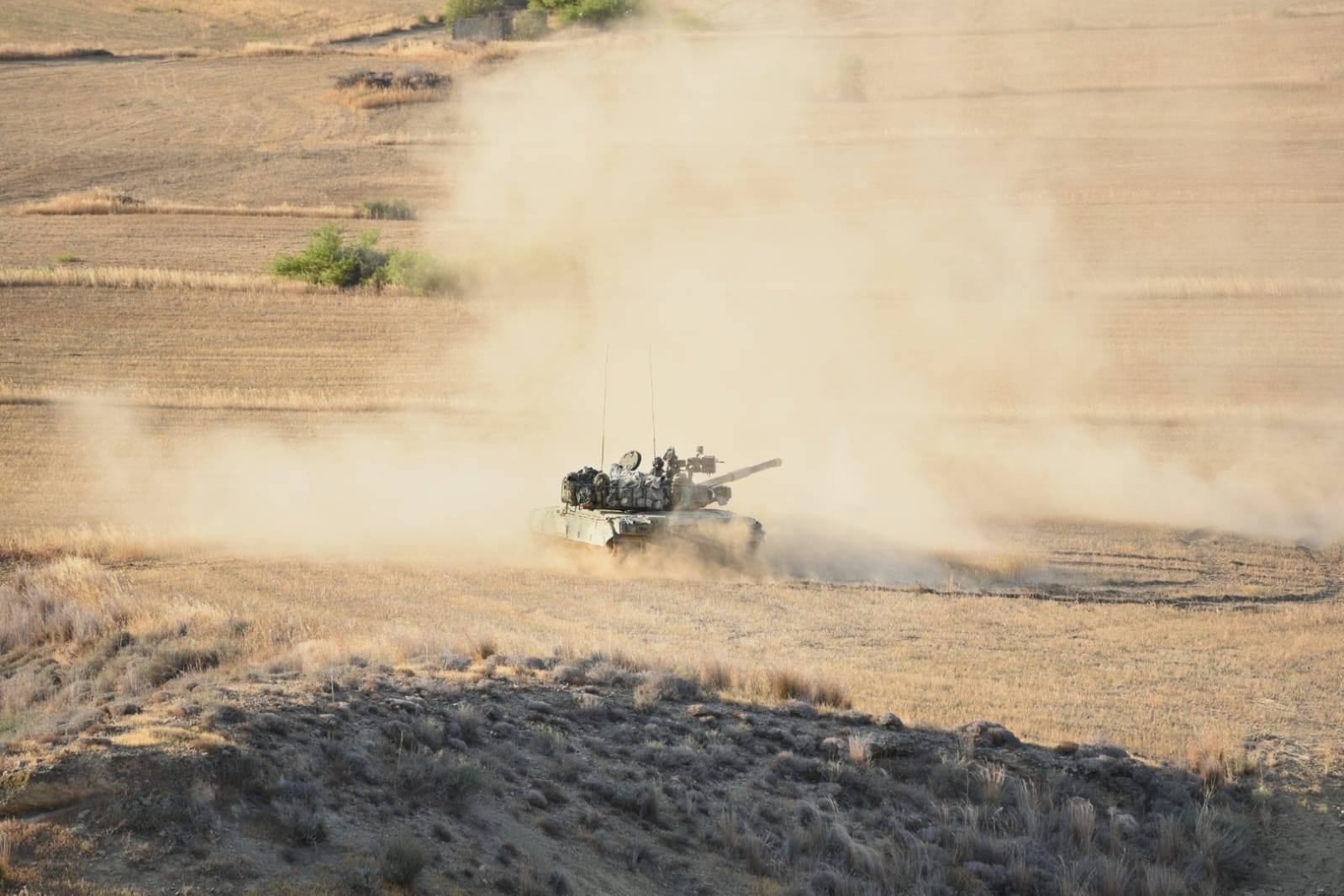An industry ecosystem that already produces drones and software sees the sector growing
Talk of Cyprus having a defence industry may get trolled in conversations and on social media, but the military is deadly serious about it. Officials freely acknowledge that it’s a small, budding, though fast-growing sector with a great deal of potential. But will it become an important supplier for the National Guard? Not for many, many years to come.
It’s true that politicians are prone to hyperbole, and Cyprus is no exception. President Nikos Christodoulides has talked up the island’s defence industry, going so far as to remark that it “would be transformed in a way that Cyprus would become a centre of advanced technology in the field of defence and become capable of contributing significantly to the collective security framework of Europe.”
Take that sales pitch with a hefty pinch of salt.
In parliament this week, MPs heard that Cyprus’ defence industry has expanded significantly in recent years, growing from just a handful of companies to around 30, and now generates approximately €40 million in annual revenue.
“First, we have to differentiate between the defence industry and the defence ecosystem,” explained head of the Directorate of General Procurement and Defence Capabilities at the defence ministry Panayiotis Hadjipavlis, who is at the centre of the endeavour on the government side.
The industry is a narrower concept, basically alluding to the private companies engaged in designing, developing and manufacturing defence-related products. The ecosystem encompasses everything: the companies, research institutes and universities, and the defence ministry.
Hadjipavlis’ directorate itself is fairly new, set up in October 2023. It consists of three branches: one dealing with European Defence Agency affairs; another dealing with research, innovation and development; and the defence industry branch
The official confirmed that the local defence industry comprises 30 or so small-to-medium-sized companies. Some of them produce exclusively defence products, others dual-use products.
Examples of such items include unmanned vehicles (UVs) for land, sea and air. These include FPVs (First-Person View) drones, quadcopters, plus loitering munitions also known as ‘kamikaze drones’.
In addition, Cypriot companies develop anti-drone systems, communication networks, electronic warfare and cyber defence systems.
As far as software development for military applications goes, this includes suites that assist with logistics, simulations, plus decision-making models.

Hadjipavlis gave one example of such a decision-making model: a drone conducting ISR (Intelligence, Surveillance and Reconnaissance) will be equipped with software that helps the drone operator immediately identify the type of object being monitored. Software draws on an embedded image library that helps identify the object and its type. Other software can predict the likely trajectory of a seafaring vessel.
What else? Companies here manufacture certain components for small, dual-use satellites.
And a few companies deal with smart materials and composites. A smart material is one that can change its properties (for example reflectivity) depending on the environment.
Out of the 30 companies, Hadjipavlis said almost half have received funding from EU programmes – essentially from the European Defence Fund. They get the funding once they’ve won a tender for developing defence systems along with other companies abroad, as part of consortiums.
Some of the items are manufactured entirely locally, and in other cases certain components are made here and the rest imported from overseas. But the final product is assembled and integrated in Cyprus.
“The defence ecosystem started up about 10 years ago,” the expert said. “At the time it was very small, with isolated companies.
“Today it’s still an emerging industry, in its development phase, not mature yet.”
Companies in Cyprus do not avail of an industrial production line – they produce limited quantities.
To date, the National Guard has not purchased any items from local industry. But, said Hadjipavlis, the military has experimented with and field-tested certain finished products as well as prototypes.
Some of the companies already export overseas – drones and electronic warfare systems.
A company needs an export license to sell products abroad. An export license needs to be co-signed by the defence ministry.
“For instance, we’ve sold drones to Ukraine,” the official said. He would not be drawn on the quantities or what type of drone.
Asked whether any sales have been made to Israel, he said he was not aware.
Anecdotally, the Cyprus Mail heard from another source about a Limassol-based company that builds military-use cutting-edge drones, going for as much as €500,000 apiece. One client is Egypt, we were told.
As of now, Cyprus manufactures no munitions (bullets, missiles or artillery shells), no military vehicles, and no small arms.
And the absence of heavy industry in general is restrictive.
“Obviously we cannot yet produce full systems, for instance air defence systems. Maybe in 15 to 20 years’ time,” Hadjipavlis suggested.
Incidentally, it takes about 15 years for a typical weapons system to go from design to field tests and finally to production and market.
We could not immediately ascertain how many people the industry ecosystem employs at the moment, although one number heard would take it to around 3,000.
Hadjipavlis stressed that the development of the defence industry does not entail an aggressive posture; rather, it’s intended as a deterrent.
“Our motto is ‘Si vis pacem, para bellum’,” he noted, quoting the Latin adage that translates to ‘If you want peace, prepare for war.’
The government thinks the development of the defence industry will help the operational capabilities of the National Guard, enhance Cyprus’ defence autonomy, but at the same time become a development pillar of the economy more broadly e.g. via investment and exports, creating jobs.
For now, there is no policy to create a state-run armaments corporation in Cyprus.
The model appears to be one of government working closely with the private sector, with constant feedback between the two.
“We at the defence ministry are in daily contact with the defence ecosystem, and our collaboration is excellent,” our source said.
Cyprus recently got €500,000 from the EU to devise a national defence industry strategy. This will comprise a document outlining defence strategy, plus an action plan for its implementation.
It will also provide for a register of defence corporations; the register will be kept by the defence ministry. The criteria to join will be “very strict,” said Hadjipavlis.
Meanwhile, in January, Cyprus established a Defence Industry Council (DIC) to support the domestic defence industry.
Defence Minister Vasilis Palmas acts as the DIC chairman. Hadjipavlis is one of its eight members, who come from academia, business chambers, and the defence sector.
The DIC will serve in an advisory capacity, supporting government policy in the defence industry sector.
Asked about the prospects of the local industry, Hadjipavlis was cautious:
“It’s certainly a growing sector, but don’t expect it to become a major supplier of the military anywhere in the near future.”






Click here to change your cookie preferences